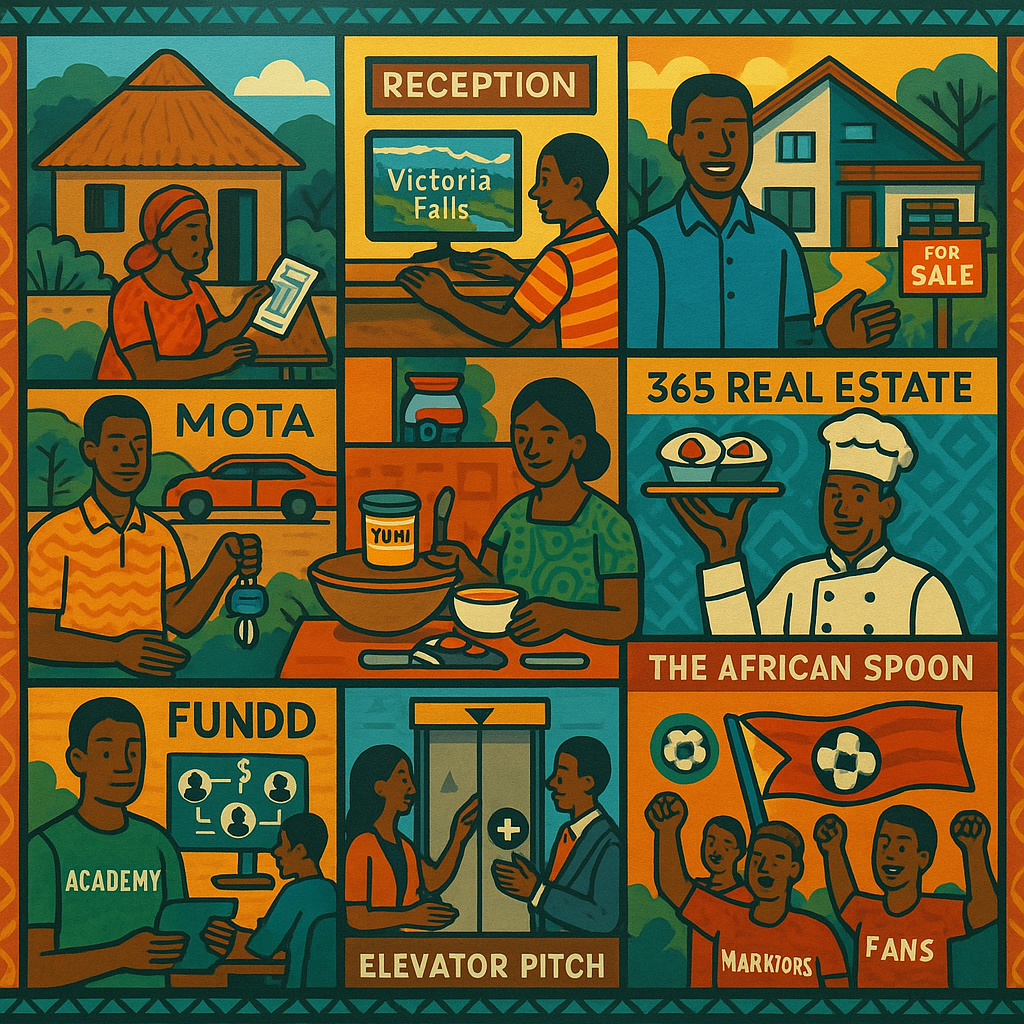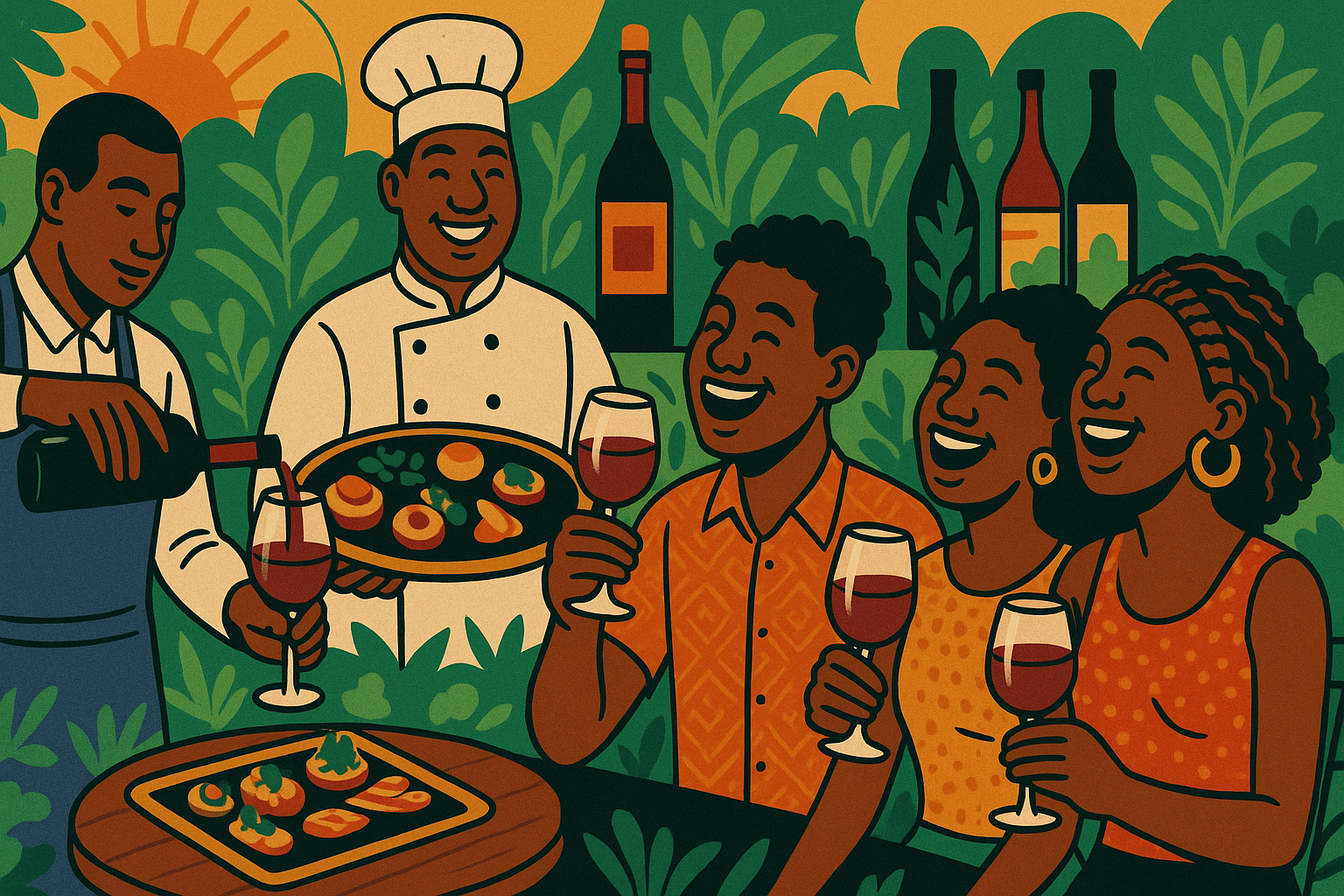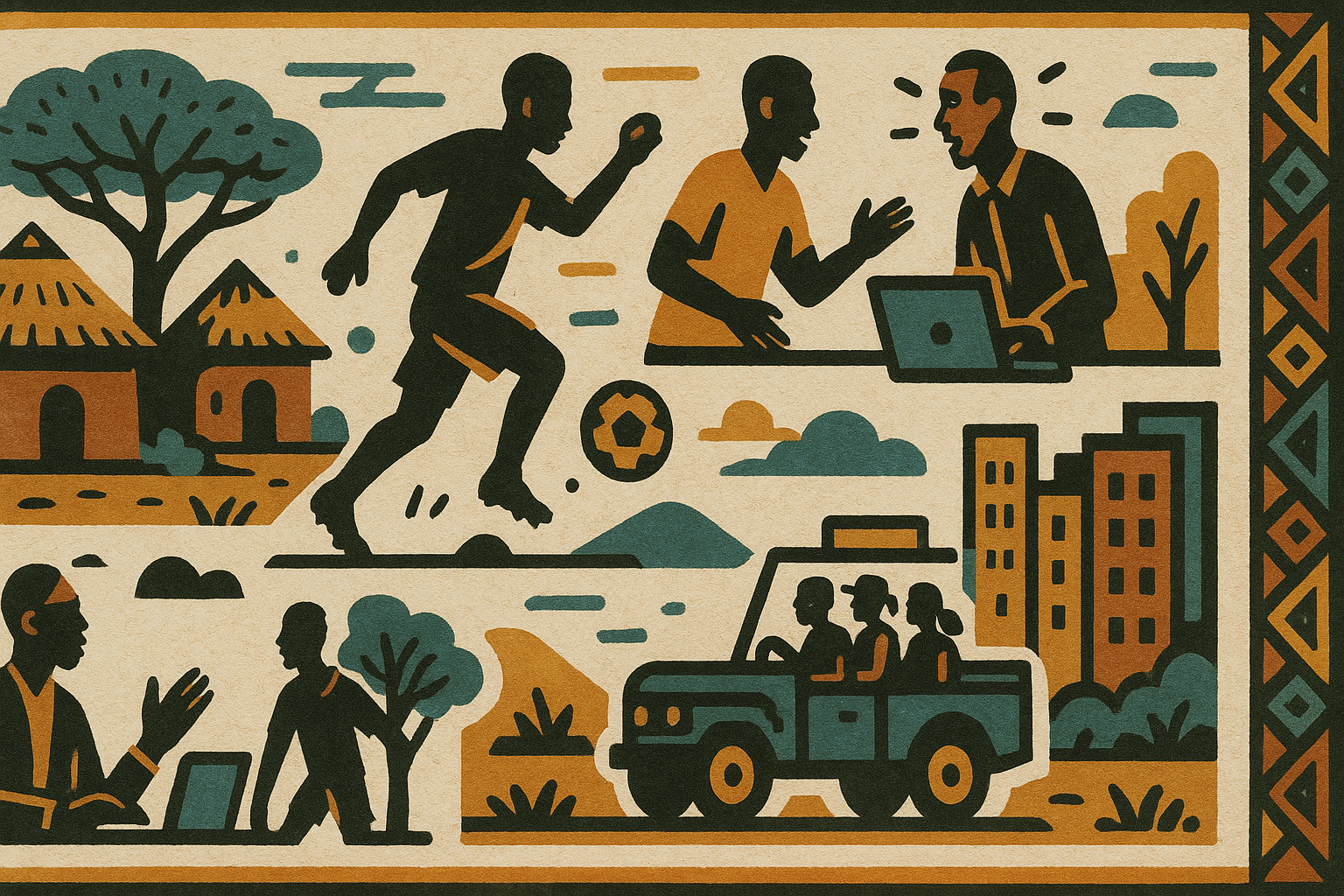Building Africa’s “iPhone”: How The Capital Nurtures a Feel Good Ecosystem
By Carl Joshua Ncube
Born on Africa Day, May 25, 1979, I’ve always carried a deep-seated passion for the alternative narratives of Africa – her unique ideas, bold aspirations, and the incredible future she holds. My journey, documented in my book Start From Scratch, has been about navigating a complex, interconnected ecosystem to bring my “Feel Good Africa” concept to life.
Think of it like building an iPhone. I don’t need to know how every microchip is manufactured, but I understand the essential components required for the final product to function seamlessly. Each component, or “feature,” in my analogy represents a distinct company, brand, or project within the Feel Good Africa ecosystem.
So, where does The Capital fit into this?
Simple. Each company, brand, or project I’ve birthed is like a child. When they are born, they are nurtured by me, the parent. The Capital is the first of the physical “homes” designed to help them grow. For too long, these entities have existed primarily online or embodied by my personal work. Now, The Capital provides a tangible space for some of the most promising ones to begin “walking on their own” in the real, physical realm.
My projects are meticulously categorized, allowing me to understand precisely how to feed and grow each one through various stages of incubation. Here’s a look at these critical components and how they’re typically nurtured within The Capital’s ecosystem:
1. Idea:
Description: The initial spark, the raw concept, often just a thought or a broad problem-solving approach. It’s unrefined and untested.
Incubation at The Capital: This stage involves extensive brainstorming sessions, market research (online and local), and internal discussions to define the core problem being solved and the potential solution. It’s about fleshing out the “what if” and seeing if it aligns with the Feel Good Africa vision.
2. Proof of Concept (POC):
Description: A small-scale, internal demonstration to verify that a particular idea or hypothesis is feasible and can work in principle. It’s not a full product, but a test of a key function or assumption.
Incubation at The Capital: We focus on quick, low-cost experiments. For instance, with The Greenhouse, a POC might be successfully growing a specific crop in a small container. For a comedy concept, it might be a small, unadvertised test show for a select audience. The goal is a “go/no-go” decision.
3. Prototype:
Description: An early, functional model of the product or service, demonstrating its design, features, and user experience. It’s more refined than a POC but still not ready for market.
Incubation at The Capital: This is where we build out a basic version. For The Night Market, a prototype might be one or two food stalls operating for a very limited time with a fixed menu. For a podcast, it could be a few fully produced pilot episodes. Feedback is crucial here for refinement.
4. Product:
Description: The finalized, marketable version of the offering, ready for sale or distribution to the general public. It has gone through testing and is deemed viable.
Incubation at The Capital: This means launching the offering publicly. The Favourite Store starts stocking a range of curated products, or the Capital Comedy Workshop rolls out its first official course. The focus shifts to operational efficiency and initial sales.
5. Brand:
Description: The unique identity, personality, and perception associated with the product or service. It’s more than just a logo; it’s the promise and emotional connection.
Incubation at The Capital: Intensive work on visual identity, messaging, storytelling, and market positioning. We leverage my experience in personal branding and marketing to craft a compelling narrative that resonates with our target audience and embodies the “Feel Good Africa” ethos.
6. B2C (Business-to-Consumer):
Description: Focusing on direct sales and interactions with the end-user or individual customer.
Incubation at The Capital: For projects like The Greenhouse (starter boxes) or The Favourite Store, this involves direct sales strategies, customer service training, retail experience management, and building direct customer loyalty programs.
7. B2B (Business-to-Business):
Description: Targeting other businesses as clients or partners.
Incubation at The Capital: We develop strategies for bulk sales (e.g., The Greenhouse supplying restaurants), corporate training (e.g., MC training for corporate events from the Comedy Workshop), or partnerships with other enterprises (e.g., The Night Market collaborating with food suppliers). This involves networking and understanding corporate needs.
8. Company:
Description: The legal entity structured to operate the business, with established roles, processes, and financial systems.
Incubation at The Capital: Formalizing operations, setting up proper accounting, establishing legal frameworks, hiring initial staff, and defining organizational structures. Each project moves towards becoming a self-sustaining business unit.
9. Corporation:
Description: A larger, more complex business structure, often with multiple departments, diverse operations, and potential for broader market reach or investment.
Incubation at The Capital: This stage involves scaling up successful companies, exploring expansion opportunities (geographical or service diversification), attracting larger investments, and possibly merging or acquiring other entities. It’s about building significant market presence.
10. Cause:
Description: The underlying social or environmental mission that drives the project beyond pure profit. It’s the “why” that fuels the “Feel Good Africa” concept.
Incubation at The Capital: Every project is evaluated for its social impact. The Greenhouse promotes food security and sustainable living. The Comedy Workshop fosters talent and provides economic opportunities. The Favourite Store supports small producers. This cause-driven approach is woven into the DNA of each entity, ensuring they contribute positively to society.
11. Platform:
Description: A digital or physical ecosystem that connects multiple users or components, facilitating interactions and transactions.
Incubation at The Capital: This refers to the synergistic environment created by The Capital itself. The Night Market is a platform for chefs. The Capital Comedy Workshop is a platform for comedians. The Favourite Store is a platform for producers. It’s about creating interconnected spaces where different “children” of the ecosystem can interact and grow together.
12. Ecosystem:
Description: The complete, interconnected network of all these components – projects, brands, companies, platforms, and causes – working together synergistically to achieve a larger vision.
Incubation at The Capital: This is the grand vision. The Capital itself is the incubator for this larger “Feel Good Africa Ecosystem.” It’s about ensuring each component supports and strengthens the others, creating a self-sustaining, ever-growing network that champions African ideas, aspirations, and a positive future. It’s the “iPhone” – where all the brilliant components seamlessly work together to deliver an incredible experience.
The Capital is more than just a building; it’s a living laboratory, a nurturing home where Africa’s next big ideas are being carefully cultivated. It’s about building a future where our creativity, our ingenuity, and our positive narratives truly shine.
Stay tuned, Zimbabwe, because the future is being built, one “child” at a time, right here at The Capital!










- All Posts
- Business Plans
- Events
- Investors
- Lectures
- News
- Profiles
- Startups

By Carl Joshua Ncube, The Capital Every business idea begins as a seed — tiny, full of potential, and needing...

By Carl Joshua Ncube When I set out to build The Capital, I wasn’t creating just another co-working space —...

by Carl Joshua Ncube If you’ve been looking for an excuse to dress up a little, laugh a lot, and...

by Carl Joshua Ncube, The Capital Innovation Hub When people hear “SaaS,” their eyes often glaze over like it’s some...

For years, I was a creator, a builder, a strategist. I built my own path across comedy, media, food, and...
A Business Plan by Carl Joshua Ncube 1. Executive Summary: The Asset Revolution MOTA (a play on the term for...
A Business Plan by Carl Joshua Ncube 1. Executive Summary KANGA FRY is a mobile fast-food stall franchise specializing in...
This business plan outlines the strategy for ROOST, a franchised, organic, free-range hospitality and retail concept by Carl Joshua Ncube,...

For too long, the narrative around African entrepreneurship has been defined by scarcity—of funding, of skills, and of infrastructure. When...
